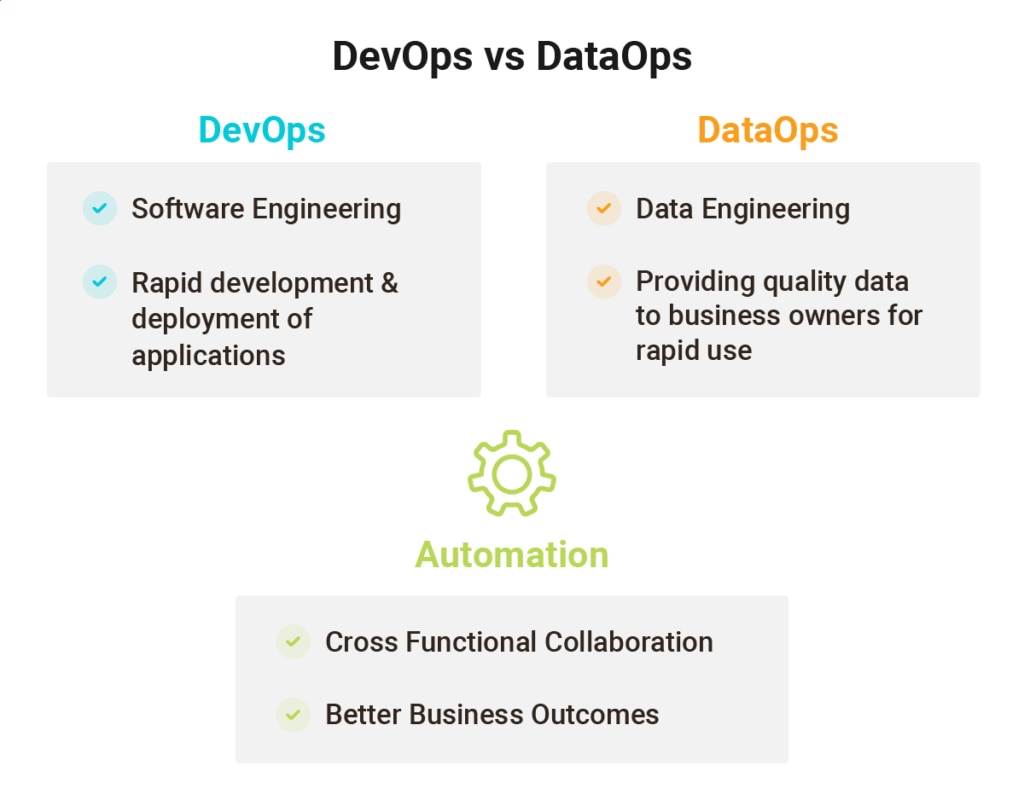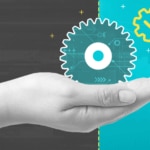Over the past several years, there has been a big focus on streamlining infrastructure operations. Many organizations have begun using DevOps principles in their software development and operations activities. We've also seen a new Ops in town recently: DataOps.
Good things come from new methods to help teams collaborate across an organization. I can't tell you how many times it would have been easier in the past to work together with development teams to make sure they had the resources they needed instead of the endless tickets and requests that never got translated quite the right way. Today, the infrastructure and data teams no longer sit in the silos of reminscent of a decade ago.
Let's take a closer look at the
latest trends in DevOps and DataOps, including how they can be separately used in an organization and also how they can partner together to help drive substantial business value.
What is DevOps Used For?
DevOps improves cross-team collaboration to accelerate software development. The procedure is heavily focused on automation and removing burdens from the infrastructure operations teams, who used to deploy the infrastructure components software development teams used.
Continuous integration/continuous delivery (CI/CD) is at the core of the DevOps methodology. CI/CD allows the results of development to flow constantly into deployment and testing. Because CI/CD is automated, teams can rapidly provision and test code before making changes and doing it all over again with shorter, more efficient release cycles.
DevOps has become increasingly popular over the past several years for good reasons. This streamlined model has greatly improved the lives of both the developers and the operations teams. Many organizations have seen additional synergies and innovations as these two groups began to connect and collaborate to drive outcomes.
What is DataOps Used For?
DataOps recognizes the continuous growth of data, and we need better ways to manage it through its lifecycle.
The
DataOps methodology streamlines data management operations to drive data flows for activities such as data analytics and machine learning, accelerating the use of data products for other teams across an organization. One of the key benefits of DataOps is ensuring data quality while accelerating data-driven decision-making. Thus, DataOps unlocks the power of big data.
While data scientists, data analysts, and data engineers play a big part in DataOps, other teams, such as product development and software engineering, also benefit. DataOps employs AI to get new data sets rapidly, so they can be used to test a product. DataOps can also mine data through the use of AI for new insights to provide a competitive edge.
What’s the Difference Between DevOps and DataOps?
While both DevOps and DataOps partner with operations teams and follow an agile methodology, there are some key differences between the two. There are certainly similarities between the two methodologies, such as enabling cross-functional collaboration between stakeholders in an organization and streamlining workflows. But the outcomes of DevOps and DataOps are very different.
DevOps includes a big focus on testing, where software developers know the expected outcomes. In DataOps, things are fundamentally different because data scientists may not know the expected results of the data they are mining; they may be simply searching to see what patterns exist versus looking for a specific outcome.
Figure 1 summarizes the different purposes of DevOps and DataOps.
 Figure 1: DevOps and DataOps have different purposes, but both aim at better collaboration for better business outcomes.
Figure 1: DevOps and DataOps have different purposes, but both aim at better collaboration for better business outcomes.
What's the Difference Between a DevOps Engineer and a DataOps Engineer?
DevOps engineers and DataOps engineers have fundamentally different skill sets and functionality due to the demands of their work. DevOps engineers focus on processes in the software development lifecycle to rapidly create high-quality software products. It's common for DevOps engineers to have a software development or IT operations background.
DataOps engineers focus on creating data pipelines that allow data to be quickly analyzed and used by various teams across the organization. It's common for DataOps engineers to have a data science or data engineering background. The skill sets of these two types of engineers are very different because these two methodologies drive different outcomes within an organization.
Why DevOps and DataOps Need Observability
To drive innovation, whether, in software development or data management, correct implementation is key to success. It's also essential to continuously monitor data and development processes to help ensure they're working as expected to drive rapid outcomes, reduce cycle times, and successfully support agile development.
These changes simply cannot be achieved without observability. When software development or data use is performed rapidly, you need immediate insight into what's happening across the application, infrastructure, and data environment. This way, you can see potential bottlenecks before they happen and quickly remediate any issues to help ensure end-user satisfaction.
Looking for a solution to help speed up your DevOps or DataOps journey? Learn more about how
SolarWinds® Observability is built to provide a comprehensive look across your entire technology stack in one centralized view.
 Figure 1: DevOps and DataOps have different purposes, but both aim at better collaboration for better business outcomes.
Figure 1: DevOps and DataOps have different purposes, but both aim at better collaboration for better business outcomes.








